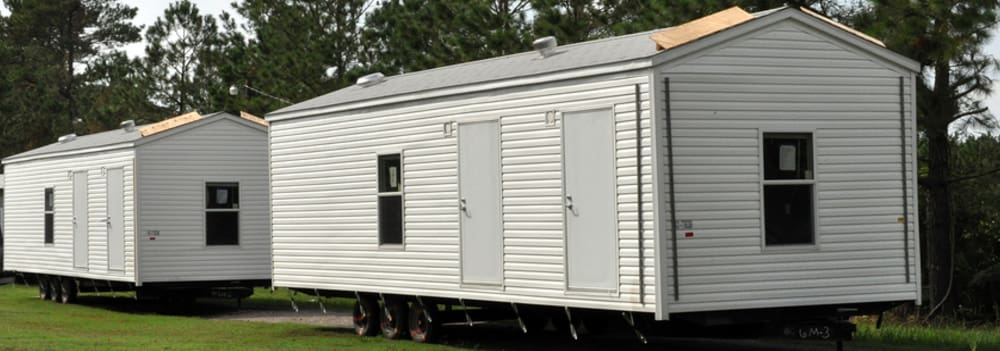Due to the ambiguous nature of Texas voter residency requirements, developers and local taxing entities are using a controversial “rent-a-voter” scheme to pass millions of dollars in bond debt and taxes without needing to secure the approval of the general population. However, Tea Party activists who attempted to use the same tactic to oppose the taxes are now facing time in prison.
In what has become a common practice, developers lobby the legislature to create special purpose taxing districts in undeveloped areas where they are wanting to build, however, the boundaries of the district are drawn to exclude all voters. Because an election is required for these districts to pass bonds, developers will hire people to register to vote temporarily in mobile homes they have set up inside the district’s boundaries.
An election is then held and the temporary voters unanimously approve millions, sometimes billions, of dollars in bond debt. As soon as the bonds have been passed, the trailers are removed and the voters move on, often to another district where the process begins again. The debt will be paid over the course of many years by future residents who move into the development.
Blaketree MUD, a development on the Tiger Woods golf course in western Montgomery County, is a recent rent-a-voter example. Two voters brought into the MUD approved over $257 million in bond debt in the November 8th election. The previous year, two voters in Conroe’s Camp Strake development approved approximately a billion dollars in bonds. The rent-a-voter scheme also approved a tax rate for the district and elected a board of directors, none of whom lived inside the MUD.
While powerful developers are able to hire top lawyers to help them navigate the intricacies of election law in order to pass debt with rented voters, ordinary citizens and grassroots activists often do not have that luxury.
Two conservative activists, Adrian Heath and Jim Jenkins, are facing three years in state prison for doing what they believe is no different than what the rent-a-voters are paid to do.
Heath and Jenkins set their sights on the abuses of RUD 1, a district in The Woodlands gerrymandered to include only commercial areas and exclude residential areas with voters. The district imposes taxes on local businesses, leading former State Rep. Steve Toth and others to decry it as, “taxation without representation.”
In order to fight the RUD tax, Heath, Jenkins, and several others registered to vote in a hotel inside the district. After consulting the Texas Secretary of State’s Office and the local elections administrator, Heath and Jenkins believed they were fully within the boundaries of election law. Voter residence is defined in the court case Mills v. Bartlett, which states:
“Neither bodily presence alone nor intention alone will suffice to create the residence, but when the two coincide at that moment the residence is fixed and determined. There is no specific length of time for the bodily presence to continue.”
Heath and Jenkins contend they had both “intent” and “bodily presence” at the hotel. When the election came for the RUD 1 board of directors, the activists voted themselves in as the new board in an attempt to shut down the district and stop the taxing.
While the rent-a-voters are paid to be temporary voters, Heath and Jenkins were prosecuted for their actions and convicted of “knowingly voting in an election in which they were not eligible to vote” after former State Sen. Tommy Williams brought forward a complaint against them. Heath’s and Jenkins’ appeals have been denied, and they are each facing three years in the Texas State Penitentiary in Huntsville.
The sentence has sparked outrage among local Tea Party leaders who believe the activists were innocent of the charge, and that even if guilty a three year prison sentence is excessive.




